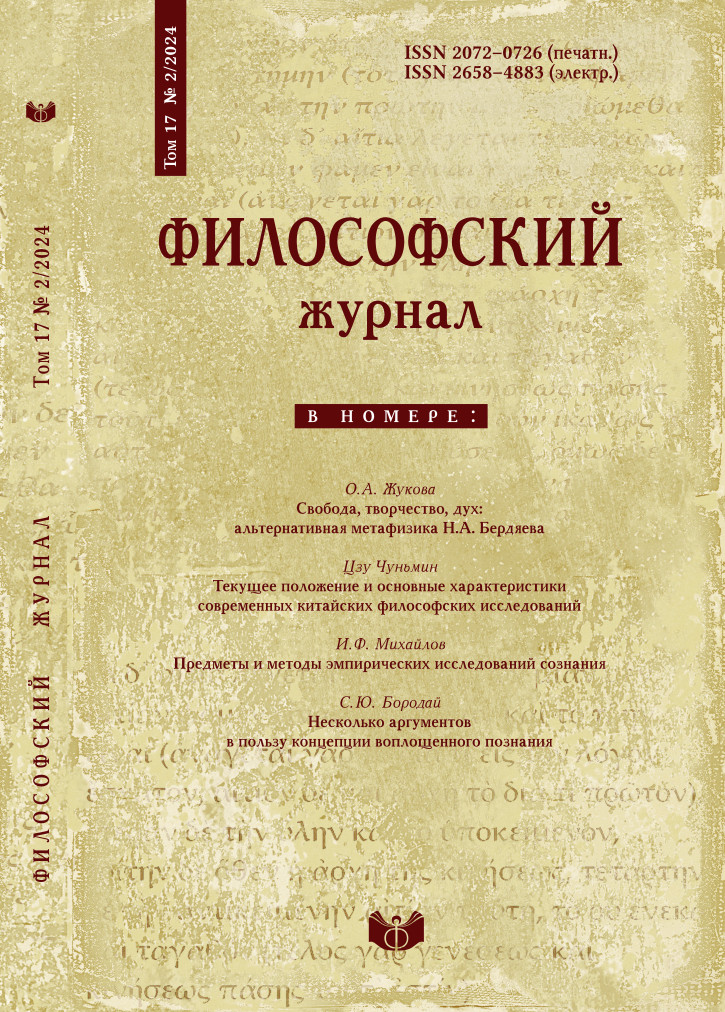Ex Oriente lumen naturale rationis: how East and West met
Book review: V.K. Shokhin. Īśvaravāda: Philosophical Theism in India. Research and Texts. Moscow: Direct Media, 2023. 336 pp.
DOI:
https://doi.org/10.21146/2072-0726-2024-17-2-184-191Keywords:
īśvaravāda, philosophical theism, Yoga, Nyāya-Vaiśeṣika, Advaita-Vedānta, ĪśvaraAbstract
The book under review is devoted to īśvaravāda – Indian philosophical theism in the context of the polemics between theists and antitheists. The author traces the history of the concepts of “theism” and “philosophical theism” in European philosophy and provides a justification for the possibility of applying these concepts to medieval India. The publication examines three versions of īśvaravāda (in classical Yoga, Advaita-Vedānta, Nyāya-Vaiśeṣika and bhakti-schools of Vedānta), accompanied by translations from Sanskrit sections of texts that present the arguments of Indian theists. The author of the review emphasizes the relevance of the book for modern philosophical discussions. At the same time, the unjustified limitation of V.K. Shokhin’s use of the astika-nāstika juxtaposition in the context of pan-Indian polemics and some negligence in the use of diacritics in transliterating Sanskrit terms is discussed.






